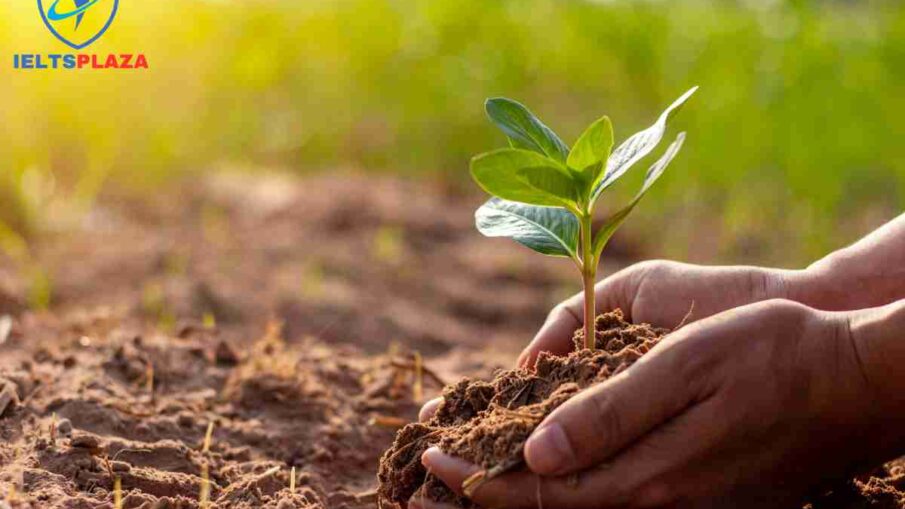Describe an important plant in your country
You should say:
- What it is
- Where you see it
- What it looks like
- And explain why it is important
Sample answer of Describe an Important Plant in Your Country
One of the most important plants in India is the Tulsi plant, also known as Holy Basil. This plant holds significant cultural, religious, and medicinal value in Indian society.
The Tulsi plant is a small, aromatic herb that belongs to the mint family. It is commonly found in homes, temples, and gardens across India. Its leaves are small, oval-shaped, and can vary in color from light green to a darker purple hue, depending on the variety. The plant typically grows to a height of about 30 to 60 centimeters and produces small flowers that are usually white or purple.
Tulsi is often seen in the courtyards of Indian households, where it is grown in a small pot or a specially designed altar called a ‘Tulsi Vrindavan.’ It is also a common sight in temple compounds, where it is worshipped by devotees. The plant’s presence in these places highlights its deep connection with Indian spiritual practices.
The importance of the Tulsi plant in India is manifold. In Hinduism, it is revered as a sacred plant and is associated with the goddess Tulsi or Vrinda, who is considered a manifestation of the goddess Lakshmi. The plant is believed to bring good fortune and protect against evil. Devotees often perform daily rituals and prayers to Tulsi, using its leaves in religious ceremonies.
Additionally, Tulsi has numerous medicinal properties. It is known for its ability to boost immunity, reduce stress, and promote respiratory health. Its leaves are often used in traditional Ayurvedic medicine to treat various ailments such as colds, coughs, and digestive issues.
In conclusion, the Tulsi plant is an integral part of Indian culture and tradition. Its religious significance, coupled with its medicinal benefits, makes it a revered and cherished plant in the country.
Follow ups Describe an Important Plant in Your Country
Question 1. What are the features of living in the countryside?
Answer – Living in the countryside offers tranquility, fresh air, and a close connection with nature. It provides a peaceful environment away from the hustle and bustle of city life, fostering a sense of community and simplicity. The countryside is often characterized by open spaces, scenic landscapes, and a slower pace of life, which can be rejuvenating for residents.
Question 2. Should schools teach children how to grow plants?
Answer – Schools should teach children how to grow plants as it fosters a sense of responsibility, environmental awareness, and an appreciation for nature. Gardening can be a practical, hands-on learning experience that teaches students about biology, ecology, and sustainability. It also encourages healthy eating habits and a connection to the natural world.
Question 3. Why do some people prefer to live in the countryside?
Answer – Some people prefer to live in the countryside due to its peaceful environment, cleaner air, and lower stress levels. The slower pace of life and the opportunity to be close to nature are appealing aspects. Additionally, countryside living often offers more space and privacy, making it an attractive option for those seeking a quieter and healthier lifestyle.
Question 4. Have new kinds of plants been grown in your city recently?
Answer – Recently, urban gardening initiatives have introduced new kinds of plants in the city, including vertical gardens and rooftop farms. These innovations aim to increase green spaces, improve air quality, and promote local food production. Exotic herbs, edible flowers, and drought-resistant plants are among the varieties being grown, contributing to a greener urban environment.
Question 5. Why do some people like to keep plants at home?
Answer – Some people like to keep plants at home because they enhance the aesthetic appeal of living spaces, improve air quality, and create a calming atmosphere. Indoor plants can reduce stress, increase productivity, and provide a sense of companionship. Additionally, tending to plants can be a therapeutic and rewarding hobby, promoting overall well-being.
Follow- Us on IELTSPlaza Pinterest

Leave a Reply